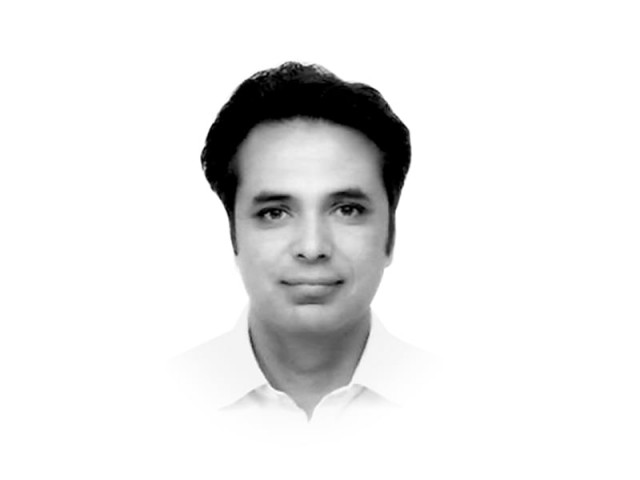The dead can make things happen
The Hazaras, through their protests, have proven to Pakistan that the dead can be deft negotiators.

The writer is a journalist and works for Express News
By any estimate, this is not the first time dead bodies have been used as a way to highlight grievances. In a span of a week or 10 days, you do get to read a couple of news items of families carrying the remains of their loved ones onto roads, blocking traffic, demanding justice. Around the same time as the Quetta protests were taking place, relatives of two brothers, killed in what looked like an overzealous and off-target raid against al Qaeda sympathisers in Rawalpindi, resorted to this time-tested method to draw attention towards their plight. Two days ago, a young person got killed at the hands of land-grabbers in Islamabad and his dead body, too, was placed in the middle of a busy road for hours. Earlier, victims of a particular operation in the Fata region had done the same thing in Peshawar.
However, the Hazara community's move has been supremely methodic and infused with a spirit of total defiance. More than that, the large number of the dead provoked the families to come out in totality, leaving no breathing soul behind in the comfort of their homes. The chants and the slogans around the coffins and the meticulous organisation in the mourning crowd (the hardest to handle because of extreme emotional stress and deep trauma) has created a model of protest that is most spectacular, even if macabre and soul-destroying to view. This community has finally created the key for ordinary people to get an audience with the state of Pakistan — by making the dead their emissaries.
And they have been very successful in making this key work. Two protests of this nature have already made a dysfunctional government go out of power and forced the sleeping giant, the country's security establishment, to wake up to the need to take real action against those who kill in the name of sects. This is no mean achievement. For years, the killing of this community remained a non-issue for the federal government. While the missing persons’ case got maximum publicity, the killing of Hazaras and, of course, those of the settlers in Balochistan, could never fetch any attention. Former chief minister, Nawab Aslam Raisani, in fact, used to crack strange jokes about the extreme vulnerability that this community felt in his area of jurisdiction. The media remained quiet. The army and the intelligence agencies went about their work as if nothing of supreme urgency was happening under their nose. This continued even when the killings bore undeniable marks of racial and sectarian motives and took the form of an open declaration that all those who looked like Hazaras and acted in faith like Shias would be wiped out of Balochistan.
From that abominable apathy to the present-day alacrity in which the chief of army staff was seen huddled with the president and prime minister, vowing to carry out a "targeted operation against terrorists", there has been a sea-change in the reaction that the Hazara community's demands have got from the same set of political and military elite that ignored them for years. Clearly, the potency of the protest has been because of its nation-wide nature. Not just Quetta, but practically all big cities of the country had been shut down on account of coordinated strikes by different Shia organisations. This protest got great strength because of thousands of others who came out to express their anger, not because of ideological affinity with the Hazaras, but because of the sense that a grave tragedy had fallen upon a hapless section of the population. Obviously, not every other group would be able to paralyse the country like these protests have. Not every wronged section would have enough courage to delay the religiously-mandated and medically-recommended burial for days. But there will be copy-cat protests for sure, especially since the weak and the vulnerable across the country are being consistently put in the grinding machine of terror, injustice and hopelessness. The Hazaras, through their protests, have proven to the millions in Pakistan that here, in this land of the pure, the living do not matter but the dead can be deft negotiators. They can make things happen.
Published in The Express Tribune, February 21st, 2013.














COMMENTS
Comments are moderated and generally will be posted if they are on-topic and not abusive.
For more information, please see our Comments FAQ